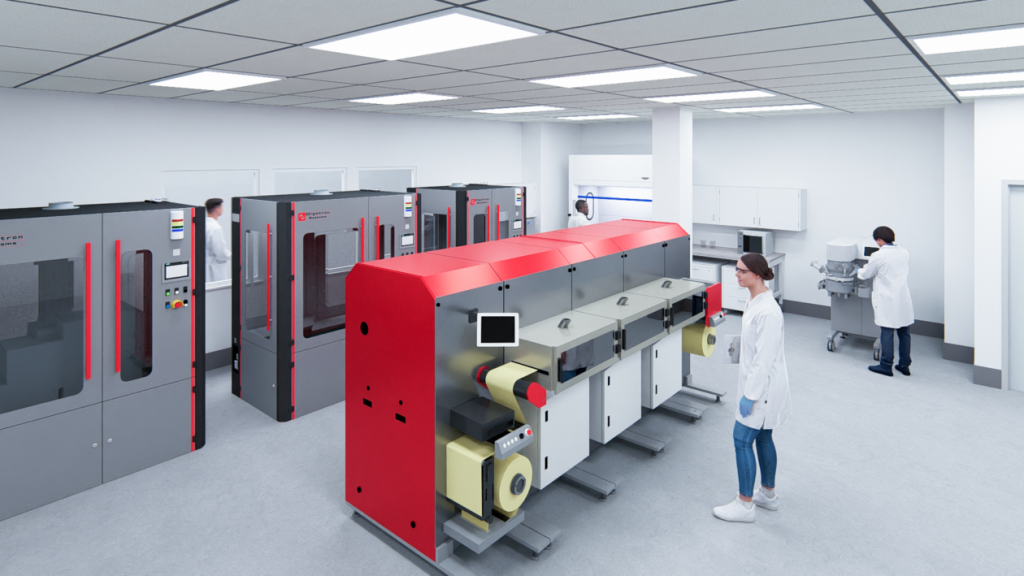Entrepreneurs and academics worldwide are focused on expanding battery innovation to improve power and performance. The Washington Clean Energy Testbeds at the University of Washington have been providing support since 2017, offering space, tools, and expertise for startups, university staff, and students. Now, the facility is unveiling plans for an open-access lab that will allow researchers to validate their new technologies by incorporating them into custom-made pouch cell batteries. This lab will address the need for testing how new battery components work together, rather than focusing solely on individual optimizations.
The new 1,600-square-foot lab expansion at the Washington Clean Energy Testbeds will include a dry room and equipment for creating electrode slurries, coating electrodes, and assembling the battery components. The batteries will be fabricated in plastic-lined aluminum pouches, resembling a Pop Tart package. These pouch cell batteries are not only useful for experiments but also have commercial applications in electric vehicles, consumer electronics, heavy trucking, and aviation. This flexibility allows for optimized designs tailored to various use cases, and at a scale where testing is possible.
Funding for the $7.5 million lab expansion is coming from the state’s Climate Commitment Act, which supports the clean energy transition. However, the program may be eliminated if Initiative 2117 passes. The industry is eager for these new resources, as demonstrated by the 150 clean tech companies that have used the testbeds over the past seven years, working on batteries, solar energy, and the electrical grid. Companies like Group14 Technologies and Ecellix have utilized the testbeds to develop innovative battery materials, with Group14 securing significant investment for building a large manufacturing facility for silicon anode materials in Eastern Washington.
With the growth of battery businesses, there is an increasing demand for skilled workers. The UW is launching a Graduate Certificate in Battery Engineering in January, offering workshops at the Testbeds and open to students at two-year schools across Washington. In the future, the entire Clean Energy Testbeds will be moving to a new building called Brightwork as part of the Portage Bay Crossing initiative. Although construction was initially scheduled for this year, it has not yet begun. The labs at the Testbeds are designed to be easily relocated as demand for better batteries continues to increase.
The open-access lab at the Washington Clean Energy Testbeds will provide a crucial infrastructure for battery innovation in the U.S. The facility will assist researchers in proving the benefits of their solutions by testing how new battery components interact. This is essential for developing efficient, high-performance batteries for various applications, including electric vehicles and consumer electronics. Despite potential funding challenges due to the fate of the Climate Commitment Act, the growing demand for improved batteries highlights the urgency of advancing battery technology to meet the evolving needs of the clean energy industry.


